Refurbished laptops are quickly gaining traction, especially among students, remote workers, and anyone looking for reliable performance on a budget. But the big question still looms:
Are refurbished laptops good?
That hesitation is real. People often worry about durability, warranty coverage, or whether the laptop was just a dressed-up lemon.
I get it—been there. During college, I bought a certified refurbished laptop to stretch my tight budget. It worked flawlessly for years. Still, friends raised eyebrows, wondering if I’d end up with a glitchy machine or no customer support.
In this blog, we’ll unpack the pros and cons of refurbished laptops, explore how they compare to new and used options, and help you decide if they’re truly a smart investment. Whether you’re curious about refurbishment standards, warranty coverage, or overall value, you’re in the right place.
Let’s dive into the truth behind refurbished electronics—and whether they’re worth your hard-earned money.
Key Takeaway: Are Refurbished Laptops Good?
Yes, refurbished laptops are a good investment if bought from trusted sellers and tested for quality. They offer up to 50% savings, solid performance, and eco-friendly benefits. Ideal for students, budget-conscious buyers, and green tech users, refurbished laptops combine value, reliability, and sustainability in one smart purchase.
What Are Refurbished Laptops?

Refurbished laptops are pre-owned devices that have been professionally repaired, tested, and restored to like-new condition. These devices may have been returned due to cosmetic flaws, minor defects, or buyer’s remorse—but after inspection and upgrades, they’re resold as certified refurbished laptops.
Unlike used laptops, which are sold as-is, refurbished models go through rigorous quality checks. Some are even factory refurbished by the original manufacturer, often including a warranty for extra peace of mind.
Think of them as the sweet spot between new and used. You get better reliability than used laptops, but at a much lower cost than brand-new ones.
The refurbishment process includes:
- Full diagnostic testing
- Replacement of faulty hardware
- Software updates and factory reset
- Cleaning and repackaging
If you’re asking yourself, “Are refurbished laptops good?”—this process is a big part of the answer.
Bonus? Choosing a refurbished laptop also supports a more sustainable lifestyle. By buying one, you help reduce e-waste and extend the life cycle of electronics.
Should I Buy a Refurbished Laptop?
If you’re wondering “Can refurbished laptops be trusted?”—the short answer is yes, especially if you know what to look for. Refurbished laptops can offer great value, solid performance, and eco-conscious savings—but only if you buy smart.
Here are five key factors to consider before making your purchase:
1. Choose a Trusted Refurbisher
Always buy from reputable sellers like Apple Certified Refurbished, Dell Outlet, or Amazon Renewed. These sources provide professionally inspected laptops that meet high standards.
2. Look for a Warranty
A warranty is a strong sign of quality assurance. Even a 90-day guarantee helps protect your investment and shows the device was properly refurbished.
3. Inspect the Quality
Make sure the laptop has passed certification checks, and look for details about battery life, screen condition, and keyboard wear.
4. Check the Hardware Specs
Aim for modern processors—8th Gen Intel Core or AMD Ryzen 3000 (Zen 2 or newer). Avoid models too outdated to run today’s software smoothly.
5. Compare Prices Carefully
Ensure you’re getting a real discount. A refurbished laptop should offer significant savings over a comparable new model.
Buying a refurbished laptop is a smart investment—as long as you prioritize reliability, seller reputation, and performance.
TL;DR: Should You Buy a Refurbished Laptop?
Yes—refurbished laptops are a good investment if bought from a trusted seller. Look for warranty coverage, modern processors, and certified refurbishing. Compare prices with new models to ensure real value. A good refurbished laptop offers solid performance, cost savings, and eco-friendly benefits—making it ideal for budget-conscious and sustainable buyers.
Where to Buy Refurbished Laptops?
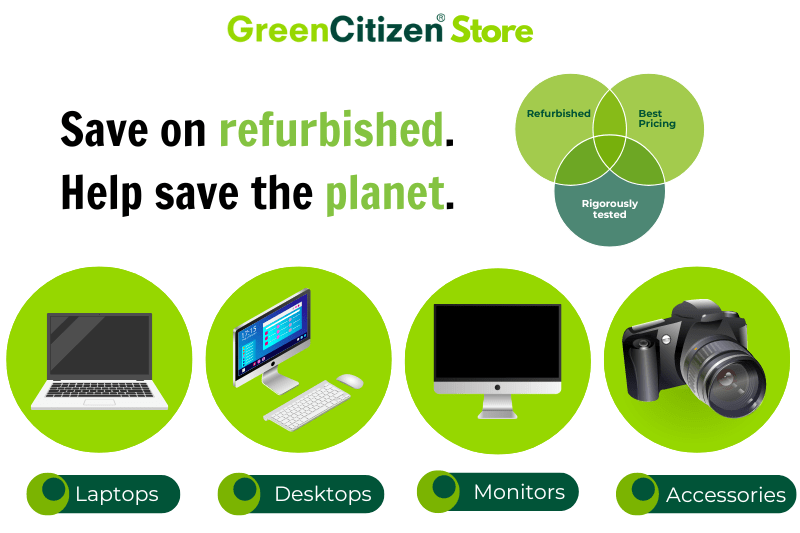
Finding a reliable place to buy a refurbished laptop is crucial. Start by looking for reputable sellers. Check online reviews and see what previous customers say about their experiences. This can help you gauge the seller’s reliability and the quality of their refurbished laptops.
Original manufacturers like Dell or Apple often have refurbished sections on their websites. These are great places to find high-quality laptops that have been restored to like-new condition. Plus, buying directly from the manufacturer usually comes with a solid warranty. But these laptops still tend to be expensive—Apple’s own refurbished laptops cost 85% of the brand new products.
The Dell Outlet is another excellent source for finding older models at reduced prices. While you may save significantly, be prepared to compromise on having the latest technology.
Amazon also has a refurbished section called the Amazon Renewed program. Here, you can find a wide range of refurbished laptops with customer reviews and ratings to help you decide.
For those who want the very best, check out GreenCitizen’s Green Store. We sell refurbished laptops that meet our stringent quality standards. Less than 1% of our items make it to the Green Store. These are the best of the best, ensuring you get a top-notch device.
By knowing where to shop and what to look for, you can find a refurbished laptop that meets your needs and budget.
What Warranty Should a Refurbished Laptop Have?
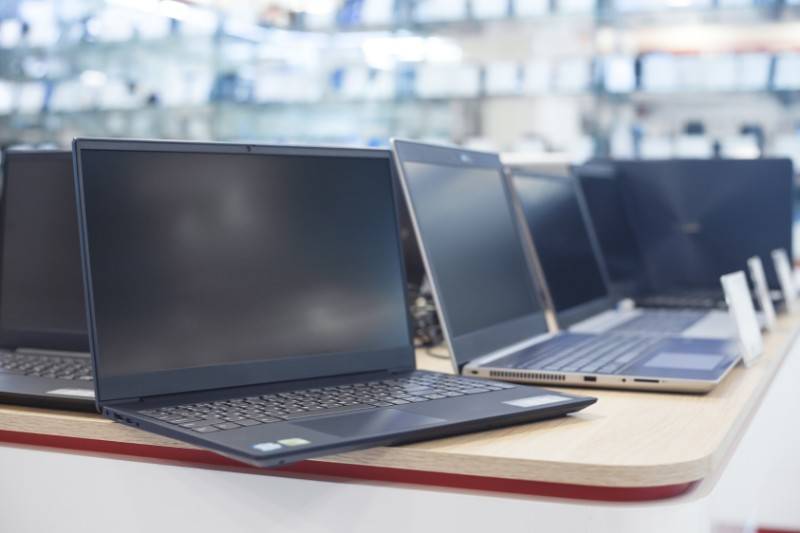
A warranty can offer peace of mind, but it’s not the only indicator of quality. Many trusted refurbishers—including GreenCitizen—sell devices that undergo extensive testing and quality checks, even if they don’t include formal warranty coverage.
Here’s what matters more than a warranty:
- Seller Reputation: Choose a refurbisher known for strict quality control and transparent return policies.
- Return Options: A short return window is often more useful than a long warranty, especially if issues show up early.
- Certification Process: Devices that pass thorough diagnostics and hardware testing are far less likely to fail.
- Customer Reviews: Look for consistent satisfaction from other buyers—this is a real-world proxy for reliability.
When I bought my first refurbished laptop, it came with no warranty—but the seller had an excellent track record. That laptop served me for years without a single hiccup.
So yes, refurbished laptops can be a great investment—even without a warranty—if the seller is transparent and meticulous about quality.
TL;DR: Do Refurbished Laptops Need a Warranty?
Not always. A warranty is helpful but not essential if you’re buying from a reliable seller with tested devices and clear return policies. What matters most is quality control, not the presence of a warranty. Yes—refurbished laptops can still be a good choice without one.
How to Assess the Quality of a Refurbished Laptop
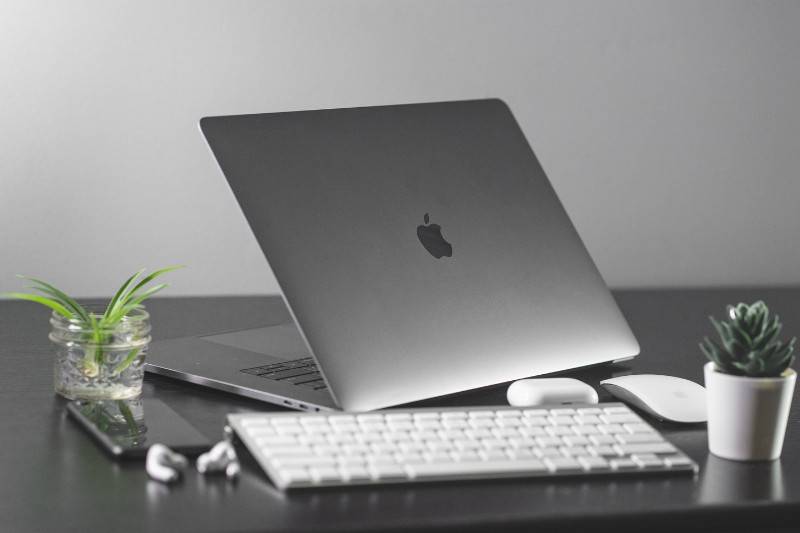
Assessing the quality of a refurbished laptop is essential to ensure you get a reliable device. Here are some tips to help you check its condition:
First, examine the laptop’s exterior. Look for signs of wear and tear, such as scratches, dents, or missing keys. While minor cosmetic flaws are acceptable, significant damage could indicate poor handling or refurbishment.
Next, turn on the laptop and check the screen. It should be bright, clear, and free from dead pixels or discoloration. Test the keyboard and trackpad to ensure they respond well and feel comfortable to use. Battery life is another critical factor. A good refurbished laptop should have a battery that holds a charge for several hours. Ask the seller about the battery’s condition and if it has been replaced or tested.
Also, check the ports and connections. Make sure USB ports, headphone jacks, and other connectors are functioning correctly. Test them by plugging in devices to see if they work.
Finally, look into the laptop’s internals. Ask for details about the processor, RAM, and storage. Ensure they meet your needs and are up-to-date. After thorough inspection and repairs, refurbished laptops are restored to factory settings, which includes a complete data wipe and the installation of a genuine operating system.
By following these steps, you can confidently assess the quality of a refurbished laptop.
How Old Is Too Old for a Refurbished Laptop?
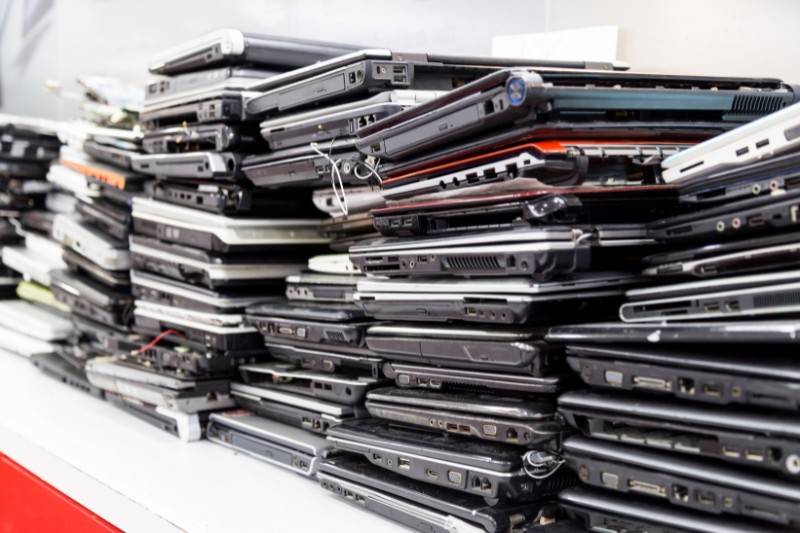
When buying a refurbished laptop, you’re essentially getting an older model. But how old is too old? Here’s what to consider.
First, the processor generation matters. Avoid laptops with processors older than 8th gen Intel or third-gen (Zen 3) AMD. These newer processors offer better performance and efficiency.
Next, consider the amount of RAM. Aim for at least 8GB—but try to get 16GB if possible—to ensure smooth multitasking and good overall performance. More RAM is always better, especially if you plan to run demanding applications.
Storage type is another critical factor. Solid State Drives (SSDs) are much faster and more reliable than Hard Disk Drives (HDDs). Always choose an SSD if possible.
Don’t forget the GPU, especially if you need the laptop for graphic-intensive tasks like gaming or video editing. Integrated graphics are fine for basic use, but a dedicated GPU offers better performance.
Check the monitor specs, too. Look for a screen with at least a 1080p resolution for clear and sharp visuals. Higher resolution screens are a plus, but not a necessity.
So, while refurbished laptops can be a great deal, make sure they aren’t too old. Focus on these specs to ensure you get a device that meets your needs.
How Much Does a Refurbished Laptop Cost?
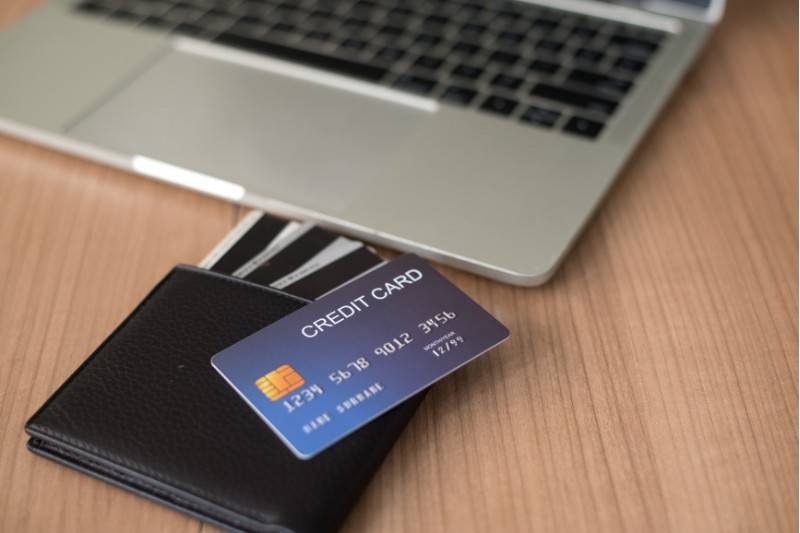
The biggest plus for many when buying a refurbished laptop is the price. Refurbished laptops can offer significant savings, making them an attractive option.
Take the Apple MacBook Pro A1990, for example. Brand new, it costs around $2700. However, a refurbished version can be found for about $1000. That’s a massive saving for a device that runs almost identically to a new one.
Refurbished laptops generally cost 30-50% less than their brand-new counterparts. This means you can get a high-performance laptop without breaking the bank. For students and budget-conscious buyers, this is a game-changer.
But it’s not just about the savings. The value you get for your money is also impressive. These laptops often undergo rigorous testing and repairs, ensuring they perform well. Plus, buying refurbished is better for the environment, reducing electronic waste.
In short, refurbished laptops offer fantastic value. By spending less, you can still get a top-notch device that meets your needs. So, if you’re looking for a great laptop without the hefty price tag, refurbished is the way to go.
Who Should Buy a Refurbished Laptop?
Refurbished laptops are ideal for several types of customers. Here’s a quick look at who can benefit the most:
- Students: They offer excellent performance at a fraction of the cost, perfect for tight budgets.
- Budget-conscious buyers: If you're looking to save money without compromising on quality, refurbished laptops are a great choice.
- Environmentally-conscious consumers: Buying refurbished helps reduce electronic waste, making it an eco-friendly option.
- First-time laptop owners: If you're new to laptops, starting with a refurbished one is a smart and affordable way to learn.
- Tech enthusiasts: Those who enjoy experimenting with different tech can get high-spec laptops for less, ideal for upgrades and tinkering.
Refurbished laptops provide a balance of cost, performance, and sustainability, making them a smart choice for many different users.
Is Getting a Refurbished Computer for Gaming a Good Decision?
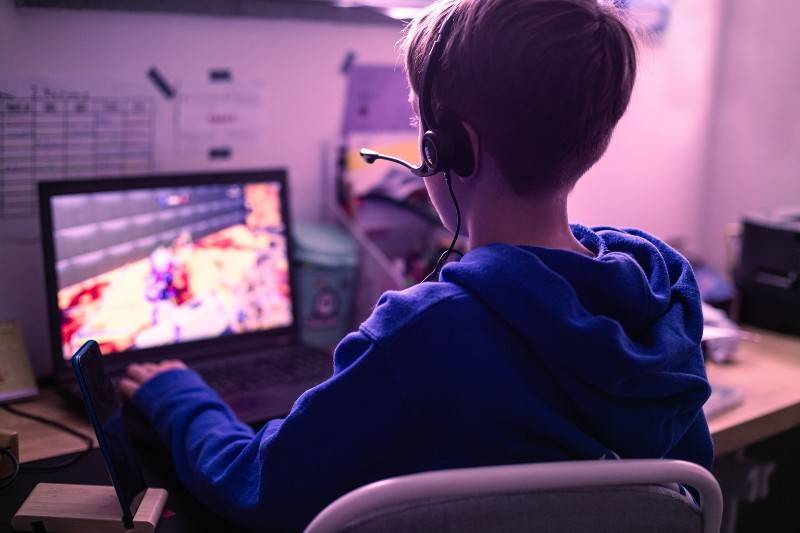
For budget gamers, refurbished gaming laptops can be a fantastic choice. If you’ve been using a PlayStation or Xbox and want to step into the world of PC gaming, a refurbished laptop might be your ticket.
Refurbished gaming laptops often come with high-end specs at a fraction of the cost. You can find models with powerful GPUs, ample RAM, and fast SSDs that can handle most modern games smoothly. Many refurbished models are tested rigorously, ensuring they run games efficiently and can provide a 60FPS or higher gaming experience.
Consider this: You get the performance you need without spending a fortune. For those used to console gaming, a refurbished laptop can offer an affordable way to experience PC gaming. You get to enjoy the flexibility and vast game library of a PC without breaking the bank.
So, yes, getting a refurbished gaming laptop is a smart move for budget gamers.
Are Refurbished Laptops a Good Investment?
Absolutely—refurbished laptops are a smart, cost-effective investment, especially for students, professionals, and eco-conscious buyers.
You can save up to 50% or more compared to buying new. For instance, a refurbished MacBook Pro might cost around $1,000, offering nearly identical performance to a new $2,700 model.
The key? Buy from trusted sellers—like original manufacturers or certified refurbishers. A warranty is nice, but not mandatory when devices are properly tested and reviewed. Focus on modern specs, SSD storage, and processors like Intel 8th Gen or newer for best results.
Refurbished laptops aren’t just budget-friendly—they’re also a sustainable tech choice. By giving electronics a second life, you help reduce e-waste and support a more circular economy.
Whether you’re working, studying, or even gaming, a high-quality refurbished laptop can meet your needs—without breaking the bank or the planet.
Happy laptop hunting!
